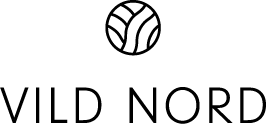What is collagen & why take it?
Collagen is one of many proteins and is naturally found in your body, particularly in the skin, bones, cartilage, blood vessels, teeth, and gums. It helps ensure that everything functions normally.
Moreover, collagen contributes to the skin's elasticity and firmness, thereby reducing the visibility of wrinkles and fine lines.
As we age, the body's ability to produce collagen decreases by about 1% per year starting at the age of 25, resulting in skin that is less firm.

Although collagen is just one of many proteins, it actually makes up 30% of the body's total proteins, with up to 80% of the skin consisting of collagen. Each protein is composed of a series of amino acids, which are molecules where some are essential and others are non-essential.
The essential amino acids, of which there are 9, are those that the body cannot produce on its own, so they must be obtained through the diet. The non-essential amino acids, of which there are twelve, can be produced by the body through various processes.
Marine collagen, which is collagen derived from fish, contains all 20 amino acids to varying degrees. Therefore, marine collagen has a complete amino acid profile.
A complete amino acid profile
The small molecules that make up every protein can all be found in marine collagen from Vild Nord. You can find the precise content of each amino acid listed below.
Amino acids pr 100g Vild Nord collagen

Learn more about the many amino acids, what they are, and what they do, in our blog post "Amino acids: What do they do?". This is also where you can find out what you should eat to meet your needs for proteins, your bodys building block.
This is how collagen works
When the body produces collagen, it takes place, among other areas of the body, in the skin cells of the dermis, also known as the leather layer of the skin.
Here, collagen works to keep the skin elastic and firm. Collagen is a protein that serves as an essential building block in our skin, tendons, bones, and other connective tissues. As we age, the body's natural production of collagen decreases, which can lead to signs of aging such as wrinkles and reduced skin elasticity.

When should you take collagen
Are you uncertain about the best time of the day to take your collagen, or when in life you should start your collagen journey? We’re happy to help you find the answers, because it’s actually quite simple.
You can take your collagen at any time of the day—the most important thing is to establish a good habit and make it a routine to take your collagen daily. If you have a specific need for collagen, you might find it beneficial to take your collagen powder at a time that makes the most sense for you. You can read more about this in our blog post, "When should I take my collagen?"
Since the body's collagen production begins to decline in your mid-20s, you can start taking collagen at that point. However, you can also start later in life—no age is too late to begin with collagen, as long as you maintain the good habit moving forward.
Pure Marine Collagen or Lemon Marine Collagen
Try Pure Marine Collagen or Lemon Marine Collagen, depending on your needs and preferences.

When choosing between these two fantastic products, Pure Marine Collagen is heat-resistant and contains no other ingredients besides 100% pure marine collagen from wild-caught North Atlantic cod. This means that Pure Marine Collagen can also be heated in drinks like coffee and tea.

Lemon Marine Collagen is enriched with vitamin C from acerola berries and has a natural citrus flavor. If you want to benefit from the vitamin C, it's important to avoid heating this variant, as the vitamin would break down and lose its effectiveness. Instead, try dissolving Lemon Marine Collagen in a glass of ice-cold water, juice, or a refreshing smoothie.

Make the most of your collagen
Now that you've started taking collagen, or if you're still in the final stages of considering it, you probably want to know how to get the most out of your collagen powder to experience the greatest benefits. Taking collagen is the first step towards naturally healthier skin, but there are additional things you can and should consider incorporating into your daily routine.

Good routines and a healthy diet
Stick to your routines, develop new healthy habits, and take care of yourself and your skin. Your skin is the body’s largest organ, and it is influenced year-round by both internal and external factors. To maximize the benefits of collagen, it’s important to combine it with a healthy lifestyle. Make sure to eat a varied diet rich in vitamins and minerals, especially vitamin C, which is crucial for collagen production. Drink plenty of water to keep your skin hydrated and support its natural regeneration process. 
Plenty of exercise - no smoking
Regular exercise can also contribute to healthy skin by improving blood circulation and enhancing the delivery of nutrients to skin cells. Avoid excessive alcohol consumption and smoking, as these can break down collagen and accelerate skin aging. Protect your skin from harmful UV rays by applying sunscreen daily, even on cloudy days.
Remember your skincare
In addition, it can be beneficial to follow a skincare routine that includes products supporting skin health and collagen production. Use gentle cleansers, moisturizing creams, and serums with active ingredients like retinol and hyaluronic acid.
Finally, it's important to give your body time to adjust and make use of the collagen. Results won’t appear overnight, but with persistence and care for your body, you will gradually notice improvements in your skin’s texture and elasticity. By integrating these habits into your daily routine, you can ensure that you get the most out of your collagen and achieve healthier, more radiant skin.




